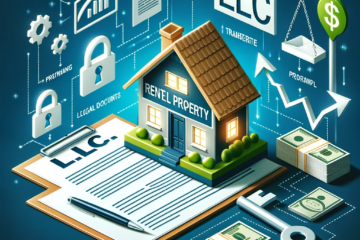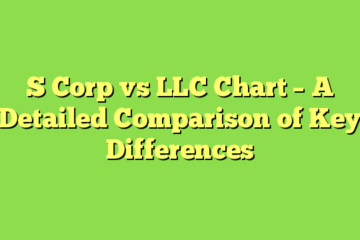Buying a house under an LLC offers some benefits but also has major drawbacks, especially for first-time homebuyers. With careful planning, existing LLCs can purchase investment properties, but there are financing and legal hurdles.
Quick Answers
LLCs allow buying property anonymously and limit personal liability, but getting financing is difficult and legal protections may be lost if used improperly. LLC ownership works best for real estate investors purchasing additional rental properties, not everyday homebuyers seeking primary residences. While LLCs have some benefits, traditional ownership is better for most first-time homebuyers.
Purchasing real estate inside an LLC allows you to keep your name private and limit personal liability. However, getting a mortgage is difficult and you cannot live in the house yourself. Overall, LLCs are best suited for experienced real estate investors, not everyday homebuyers.
Benefits and Drawbacks of Using an LLC to Buy a House
Using a limited liability company to purchase real estate can be advantageous in some cases but impractical or even illegal in others. On the surface, limited liability companies (LLCs) seem like a wise option to purchase real estate—but the reality is more nuanced. Using an LLC provides some advantages as well as notable drawbacks and limitations, especially for first-time homebuyers. Carefully weigh these key pros and cons when deciding if an LLC should buy a house:
Potential Benefits
While LLCs have considerable downsides for purchasing real estate, they can offer some potential benefits in specific circumstances:
- An LLC keeps the owner’s name off public documents for privacy.
- It limits personal liability from lawsuits or debts.
- Existing LLCs may find it easier to purchase additional investment properties.
Potential Drawbacks
While LLCs can offer some benefits in the right circumstances, they also come with considerable drawbacks to consider, especially for first-time homebuyers:
- LLCs often cannot qualify for standard mortgages.
- Transferring a mortgaged house to an LLC can trigger the due-on-sale clause.
- Living in a house owned by your own LLC invalidates corporate protection.
- First-time homebuyers benefit more from traditional ownership.
Can I Use an LLC to Buy My First Home?
For most first-time homebuyers, using an LLC to purchase a primary residence offers more disadvantages than perks. Traditional ownership lets you qualify for better mortgage terms, deduct interest on your taxes, and gain up to $500,000 tax-free on the sale.
Unless you require complete privacy or liability protection, an individual purchase likely works better. You can always transfer the property to an LLC later.
How Does an LLC Buy Real Estate?
When an LLC buys property, it must use its own finances. Members can contribute funds or loans but should document transfers carefully. The LLC can also apply for a commercial mortgage in its own name.
To qualify for financing, the LLC needs good standing documents, an EIN, bank statements showing regular income, and personal info for all members. Rental units should have existing tenant and income documentation.
Can an LLC Buy a House for Me to Live In?
LLCs exist to limit liability for business purposes. Living in a house owned by your own LLC blurs the line between personal and business assets. Courts can ignore (“pierce”) the corporate structure if you comingle assets.
Owning your residence under an LLC forfeits certain tax benefits and can complicate mortgage financing. In most cases, individuals should buy houses in their own name even if transferring later.
Should I Put My Existing House into an LLC?
Placing your current home into an LLC rarely makes financial sense. You may lose capital gains exclusions, homestead exemptions, mortgage interest deductions, and encounter transfer taxes or clauses.
To maintain corporate protections, you would also need to pay the LLC fair market rent and document carefully. For primary residences, traditional ownership is typically best. LLCs suit investment properties more.
You May Also Like to Read: Is Starting an LLC for Rental Property A Good Idea?
What Documents Do Lenders Require for an LLC Mortgage?
LLCs must qualify for commercial loans when purchasing real estate, which requires more documentation than individual mortgages. Lenders will request extensive records to verify the LLC as an active business before approving financing. Be prepared with the following documents when applying for an LLC mortgage:
With proper paperwork, an existing real estate or holding LLC can logically finance investment properties under its business name.
Should an Investment LLC Use a Commercial Loan?
LLCs purchasing real estate as investments should explore commercial loan options. Compared to conventional mortgages, requirements are higher but so are loan amounts.
Commercial lenders evaluate the LLC’s financial track record rather than personal credit scores. Solid business banking and assets make approval more likely. Interest rates may be higher but worth it for flexibility.
Investment LLCs with large down payments and strong operating histories can benefit from commercial real estate loans. Work with an experienced broker to find the right lender.
Tips for Financing LLC Real Estate Purchases
Purchasing real estate through an LLC presents unique financing challenges compared to traditional mortgages. But with careful planning and preparation, investors can increase their chances of securing the business loan they need. Follow these tips when seeking financing for an LLC real estate investment:
- Shop multiple lenders to compare loan products and rates.
- Get pre-qualified based on the LLC’s finances before making offers.
- If new, establish the LLC well in advance and build its business history.
- Contribute down payment funds from members early to season in accounts.
- Gather all required company documents and records in advance.
- Be ready to personally guarantee the loan as the LLC member.
- Consider using a commercial real estate lawyer for guidance.
Transitioning Property from Personal to LLC Ownership
Those with existing homes may still benefit from forming a holding LLC and transferring ownership. This conversion process requires careful navigation to avoid tax and legal issues.
Consult professionals to avoid triggering capital gains taxes, impacting your mortgage, or running afoul of lender clauses. Transferring title incurs fees so review budgets carefully.
With proper guidance, you can smoothly transition a personal residence into an investment property under an LLC. Develop a plan before initiating any transfers.
Conclusion
For real estate investors, LLCs can limit liability and streamline purchases of income properties. But for everyday homebuyers, traditional mortgages and ownership often make more financial sense. By understanding the pros and cons, you can decide what works best for your situation.
Frequently Asked Questions (FAQs)
Can an LLC get a mortgage?
LLCs can qualify for commercial loans but usually not standard residential mortgages. Lenders will require extensive documentation on the LLC’s finances.
Does an LLC protect your personal assets?
Properly structured LLCs legally separate business assets from personal assets, limiting your liability. But commingling funds can negate protections.
Can I buy a rental property with an LLC?
Yes, existing rental or holding LLCs can logically finance investment properties as part of their business purpose. But speak to lenders about requirements.
Do LLCs have tax benefits for real estate?
LLCs allow pass-through taxation, avoiding corporate double taxation. But you lose out on some personal deductions like mortgage interest.
Should I transfer my personally owned home to an LLC?
In most cases, no. You’ll lose tax deductions and may complicate your mortgage. Talk to professionals first about the implications.
Aisha Noreen is an owner of a small business with more than 9 years of experience in the marketing industry. With the wisdom of an old soul, she always seeks innovation and mind-blowing ROI techniques. Her unique approach helped many small businesses thrive and she can surprise you in many ways as well. Believe it or not, her energy, passion, and creativity are contagious enough to transform your business and take it to another level.








